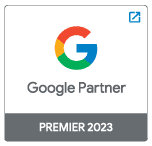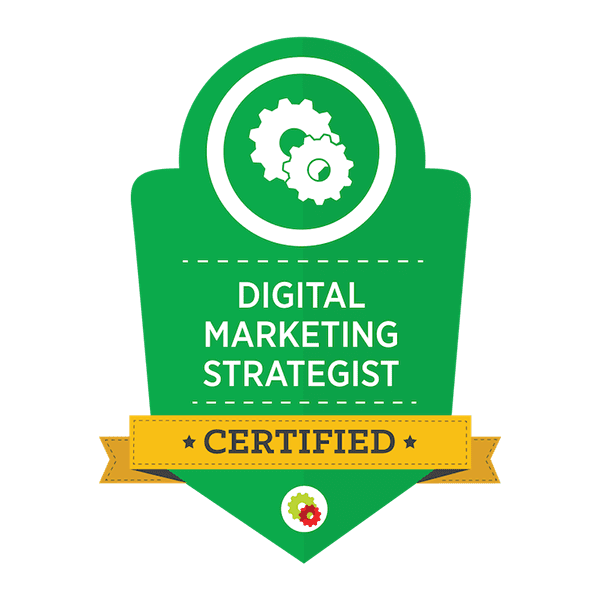Direct Mail Postcard Retargeting
Imagine having the capability to transform the interest of potential customers into valuable sales leads by sending them personalized, tangible communication right to their doorstep. With Web2Mail, this innovative approach is made possible. By employing a proprietary algorithm, Web2Mail identifies if a website visitor can be matched to a physical address. Once matched and qualified, the system automatically dispatches a customized postcard to the visitor's home mailbox within one business day.
Statistics from Marketo highlight that only 4% of website visitors are prepared to make a purchase immediately, indicating a significant opportunity to engage the remaining 96%. Moreover, Salesforce research suggests it typically takes 6-8 marketing interactions to create a viable sales lead. This underscores the importance of consistent follow-up with potential clients.
For businesses already investing in digital marketing to drive traffic, Web2Mail not only enhances engagement but also boosts credibility by 49% among your most relevant prospects. It allows you to bridge the digital and physical worlds, ensuring your message stands out in an increasingly digital landscape.
Monthly Web2Mail Packages
3-Month commitment required!
* A 30-day cancellation notice is required.
Schedule Your Consultation
How Does Web2Mail Work?
Our team will set up a tracking tag on your website that can significantly enhance your marketing efforts by allowing you to send physical print postal mail pieces to targeted visitors. Here's how we can tailor your outreach:
- Target Specific Web Pages: Choose which pages on your site will trigger the sending of mail pieces. This allows you to focus on visitors showing interest in specific products or services.
- Exclude Certain Visitors: Prevent sending mail to those who visit certain web pages, allowing for more refined targeting.
- Geographical Targeting: Narrow down your audience by specifying geographic areas, ensuring your marketing efforts align with your business reach.
- Customer List Suppression: Use your existing customer list to avoid sending duplicate materials to current customers, focusing instead on attracting new prospects.
- Budget Management: Set daily and monthly limits for your mail campaigns to ensure spending stays within a comfortable budget.
- Re-mail Timing: Decide whether you want to re-engage visitors who return to your site and establish appropriate intervals for follow-up mailings.
By utilizing these features, we can create a cost-effective and strategic approach to direct mail marketing, enhancing your overall marketing strategy.
Our design team will create an effective mail piece design tailored to your target audience. Your retargeting postcard will be optimized with these 12 key components, honed from experience our customers:
- Clear Objective: Define your mail piece’s purpose.
- Target Audience: Tailor content and design to your demographic.
- Strong Visuals: Use eye-catching, relevant images or graphics.
- Compelling Headline: Craft an engaging, attention-grabbing headline.
- Special Offers: Entice users engagement with a special offer.
- Call to Action: Include a direct, motivating call to action.
- Consistent Branding: Reflect your brand identity throughout.
- Benefits, Not Just Features! Changing the way you present your services can make a big difference.
- Color Scheme: Choose colors that evoke the right emotions.
- Incorporate Testimonials: Add testimonials to build credibility.
- Contact Information: Make contact details easy to find.
- Testing and Feedback: Test and refine your design through feedback.
By incorporating these elements, your Web2Mail piece will effectively engage and resonate with real people who visit your site.
Once you've meticulously reviewed and approved the setup criteria and carefully selected the design(s) we'll be using, it's time to hit the ground running. When your campaign goes live, you are not only showcasing creativity but also making direct, meaningful connections with your audience.
As soon as your campaign launches, we'll begin the seamless process of matching visitors to their physical addresses. This ensures that your targeted mail pieces start landing in the hands of the right people immediately. Each piece of mail is crafted with care, aiming to resonate personally and deliver your message in a unique and appealing way.
Our mission is to help you engage with your audience with authenticity and warmth. We know how much effort has gone into getting everything just right, and we're thrilled to support you as you embark on this campaign. Together, let's make sure your message shines through, making an impact and leaving a lasting impression. Here's to a successful and rewarding campaign experience!
Effortlessly manage and review the impact of your Web2Mail campaigns with our intuitive, easy-to-navigate dashboard. Designed with user convenience in mind, this powerful tool provides a comprehensive overview of all your mailing activities, enabling you to closely monitor and evaluate the effectiveness of your outreach efforts.
The dashboard reflects detailed insights into the number of cards that have been mailed, shedding light on the volume of your campaign activities. It further allows you to keep track of the precise mailing schedules, so you can ensure punctual delivery and efficient timing of your messages. Beyond just the numbers, the dashboard also highlights the specific destinations to which your cards were mailed, offering geographic insights into your campaign's reach and penetration.
But it doesn’t stop at just tracking the mail-outs. One of the key features of this insightful dashboard is its ability to track recipient interaction post-mailing. You'll gain access to data on how many card recipients visit your website after receiving their cards, allowing you to gauge the level of engagement and interest generated by your physical mail-outs. This powerful metric helps in assessing the success of your campaigns by linking physical mail tactics to digital audience interactions.
With these robust tracking capabilities, you can refine your marketing strategies, tailor your campaigns for better performance, and ultimately drive more meaningful connections with your audience. This seamless integration of mailing data into digital analytics empowers you to maximize your marketing efforts, ensuring you get the most out of every card sent.
Schedule Your Consultation
Frequently Asked Questions
Will it work on my B2B Website?
The matching technology that we use only matches to home addresses. However, since many people are working from home these days or have home-based businesses, you will still get mailable matches. In our testing, we had match rates between 30-40% for B2B websites. Plus, you only pay for the matches you receive so you have nothing to lose by giving it a try.
Why not just retarget my website visitors with online ads?
While online ads are amazingly effective, direct mail tends to have a much higher response rate overall. We highly recommend using both approaches simultaneously for the best possible response.
Is the tag easy to set up?
Absolutely. It only takes a few minutes. We’ll provide simple instructions, or we can install it for you!
Is the Web2Mail program a good fit for my business?
Great question! This program is currently setup to match consumer mailing addresses, so it works amazingly well for home service contractors.
How do you find physical addresses for anonymous visitors? Is that legal?
Web2Mail works by using a proprietary algorithm to see if a physical address can be matched to the website visitor. If a match is found, and the prospect fits your service area and any other qualifying factors, a retargeting postcard is mailed automatically within 1 business day. Collecting this data is a standard practice and is done automatically by many websites. Privacy and legality is maintained by keeping personally identifiable information separated or encoded.
The challenging part about doing this is that several providers of this kind of information have loose criteria of how accurate their matches are. We have spent the last 2 years in research and development including relentless testing to ensure that we are providing only the most accurate matches to our clients. After testing almost every other similar product on the market, we know you will find that we offer the most accurate and effective matching you can find.
How do you accurately match? I heard that IP addresses are dynamic and never accurately locate a someone's physical address.
It’s true that this level of hyperlocal targeting wasn’t possible until more recent years for those reasons, but our ability to gather and utilize mobile device GPS data in conjunction with the IP location data has significantly enhanced our ability to pinpoint user location. Our team of data scientists, engineers and analysts ingest billions of GPS observations on a daily basis to ensure the most up-to-date location responses. This is how we stay on top of the dynamic nature of the IP space. We spent two years testing and confirming the accuracy of our matches prior to the launch of this product.
Will it work on my website?
Most likely, yes! As long as you have access to your site and can add a simple tag you are good to go! We will provide simple instructions and in many cases we can even assist you with placing the code on your website. In rare instances, some sites may not allow you to place a tag (for example some GoDaddy sites or Shopify Basic sites). Just send us your website info, and we’ll let you know!
Will I get the contact names and info of the people who visit my website?
No you will not be provided with a name or contact information like phone number or email address. We only match to a physical address so your card will be mailed to “Current Resident” at the matching address.
Do I have to provide the postcard design?
Simple answer: No!
We have a brief survey that will guide you along the process. You'll be asked to provide some brief info, your thoughts on running a promotion, and we will take it from there!







